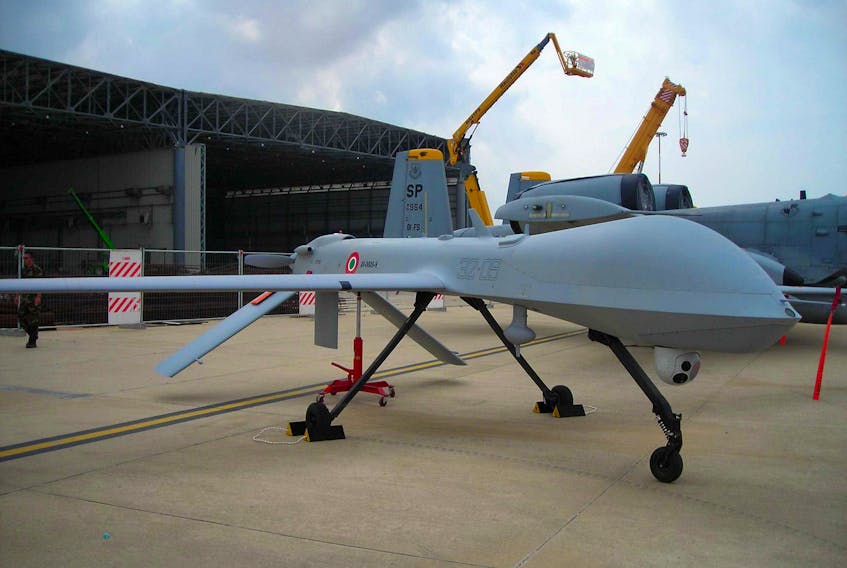The Department of National Defence has updated details about its key ongoing defence procurements.
The article notes the DND warning about issues that could affect the proposed purchase of a fleet of uninhabited aerial vehicles, commonly referred to as drones.
The DND update warned that there might not be enough procurement staff with the required expertise to move that program forward on schedule. The department hopes to deal with the problem by hiring contractors. A draft invitation to qualify for that project was released April 5 and a contact is expected to be awarded in 2022, the update pointed out.
The lack of staff has been an ongoing issue for the UAV program but in other ways. In May 2010 I reported The Canadian Force’s plan to buy pilotless aircraft to conduct surveillance off the country’s coasts, in the Arctic and on overseas missions had fallen behind schedule because the military doesn’t have enough people to fly the drones.
While the UAVs don’t carry pilots, they still require an operator on the ground to fly the craft. Staff are also needed to maintain the equipment and to prepare them for flight.
But at the time the air force was having difficulty finding enough people for a new unit that would be needed to operate the UAVs.
Then called the Joint UAV Surveillance and Target Acquisition System or JUSTAS, there had been a number of plans for the acquisition. One of the earlier ones involved a request for proposals from industry to be issued by the end of 2009 and a contract signed in 2010. The first of the UAVs would have arrived by February 2012.
That obviously didn’t happen.
A reworked plan called for the delivery of the UAVs in 2014, with full operating capability in 2017.
That didn’t happen.
The project is now named, RPAS, for Remotely Piloted Aircraft System. The latest plan calls for a contract to be awarded in 2022-2023 with full capability – an armed drone fleet – in place by 2029-2030.
Copyright Postmedia Network Inc., 2019









